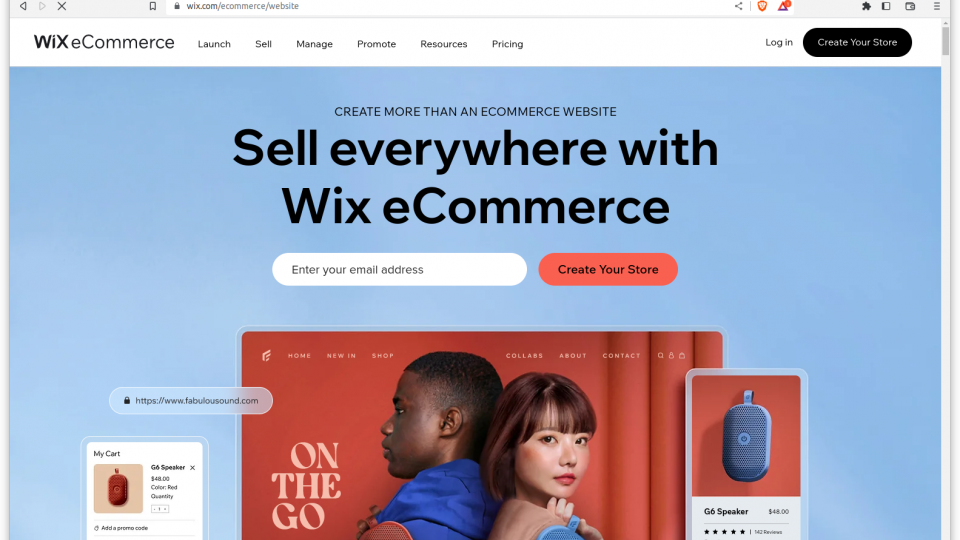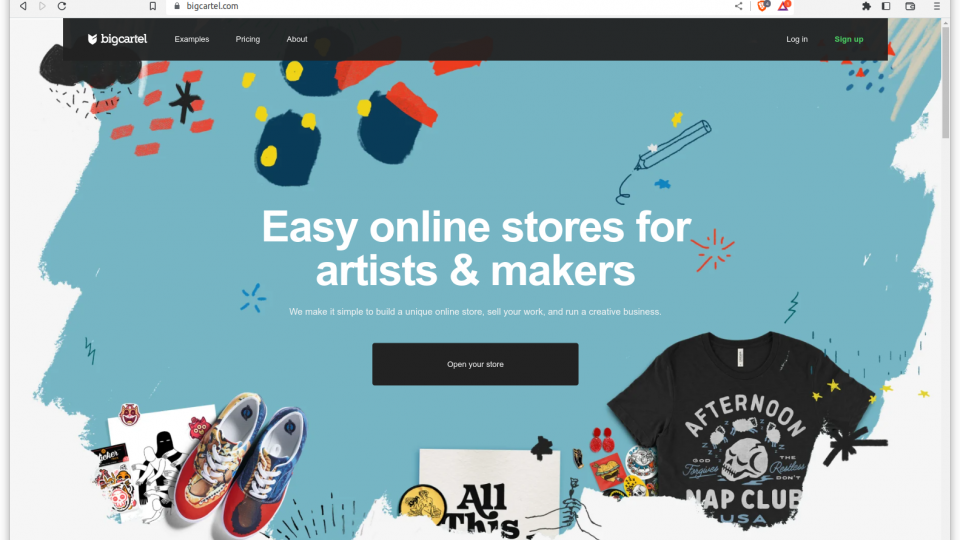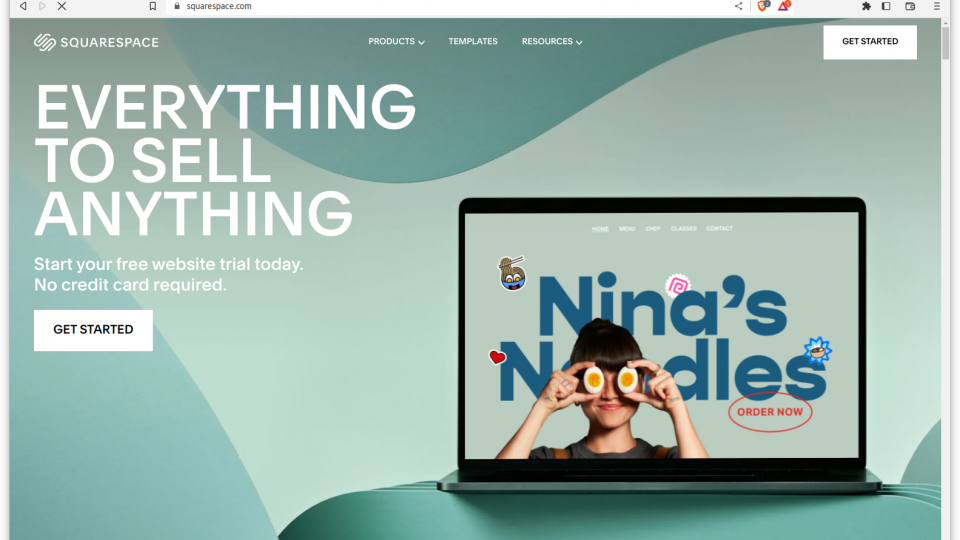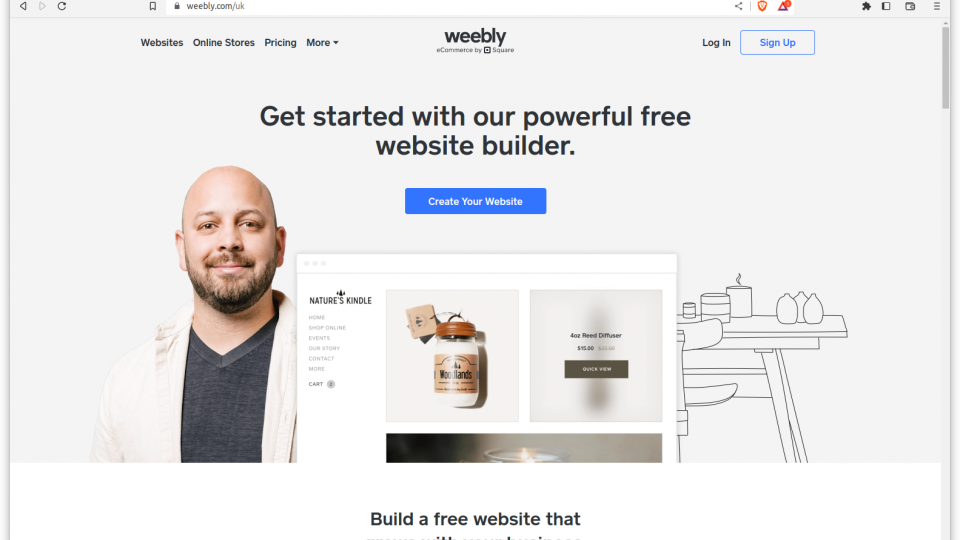WORDPRESS
Best Shopify alternatives 2023: Tools to help you set up an online store

Shopify is one of the biggest ecommerce platforms on the web. BuiltWith estimated that, as of spring 2023, Shopify sat behind just over 4m sites worldwide, of which around 180,000 were British.
Certainly, if you wanted to set up your own store quickly and with very little hassle, you wouldn’t go wrong if you opted for Shopify. It’s well supported, extensible, and used by so many online retailers, of all sizes, that there are plenty of other store owners who could help out if you become stuck.
However, it isn’t the only option. Here, we take a look at the top Shopify alternatives, each of which is worth short-listing before you make your final decision.
Best Shopify alternatives: At a glance
How to choose the right Shopify alternative for you
For comparison, what’s the Shopify offering?
Shopify plans start with the Basic tier, which costs £19 a month if you pay annually (annual plans benefit from a 25% reduction on the regular monthly price). For this, you can host an online store with an unlimited number of products, and take payments via credit or debit card, or third-party services such as PayPal. If you use Shopify’s own payment-processing platform, you’ll pay 2% commission on every transaction plus 25p for credit or debit card payments. Use a third-party payment processor, and you’ll still pay the 2%, but not the additional 25p.
Upgrading to the £49-per-month Shopify plan, or £259-per-month Advanced plan, trims these rates to 1.7% and 1.5% for credit and debit card payments respectively (each is also subject to the additional 25p per transaction) when processed by Shopify, and 1% and 0.5% respectively for payments made via third-party payment processors.
Whichever plan you choose, you can issue discount codes and gift vouchers, segment your customers, create subdomains for specific markets, segregate pricing by territory, and send automatic emails to customers who abandon their shopping carts.
If you only sell through social media, Shopify also has a dedicated Starter plan, which starts at £5 per month plus 5% transaction fees when using Shopify Payments. This buys you a simple storefront, unlimited product pages and a checkout. Should your store take off, you can upgrade to one of the plans outlined above.
READ NEXT: Our full Shopify review
How much should I pay for such a service?
You can get started for free, but be wary of hidden costs and discounts. A lot of paid plans are priced differently depending on whether you sign up for a month or a year, with discounts of up to 25% for annual commitments not uncommon.
On top of this, you’ll usually need to pay transaction fees to cover the cost of processing any sale. In some cases, you’ll have to pay these twice: once to the company hosting your online store and shopping cart, and once to the credit or debit card processor.
Keep an eye on how many transactions you’re processing every month and the cumulative cost, and calculate whether you could save money by upgrading to a more expensive tier that offers reduced or free transaction fees.
READ NEXT: The best VPNs for streaming and security
Do you need hosting and a domain?
Sign up for a year, and many store platforms will throw in a free domain. This is usually only free for your first year, however, so be sure to check the renewal costs from year two onwards. If you already have a domain you want to use, check whether there are any fees for connecting it to your store.
Are you tech-savvy?
If you’re comfortable installing and setting up the store yourself, you can integrate it with an existing site using a tool such as WooCommerce, combined with WordPress. However, this may also mean liaising with a hosting provider for web space and email.
If your talents lie elsewhere, such as in business, marketing or designing products, you might instead want to check out the all-in-one options that roll together hosting, comms and an integrated ecommerce platform.
We’ve covered both options here.
READ NEXT: The best website builders
The best Shopify alternatives in 2023
1. WooCommerce: Best for WordPress blogs
Price: From £0/mth | Sign up at WooCommerce
WooCommerce has a significant advantage over competitors: not only is it designed to work within WordPress, currently the world’s most popular content management system, but it’s also developed by Automattic, the company behind WordPress itself. With WordPress powering around 40% of all websites, that makes WooCommerce one of the best-supported Shopify alternatives around.
At the heart of this open-source ecommerce platform is its WordPress plugin, which simplifies the task of building product pages, integrates a shopping cart, and connects the store to payment options such as credit cards, PayPal, Amazon Pay, Stripe and WooCommerce’s own payment tools, among others. If you choose to use WooCommerce Payments, you’ll be charged 2.9% plus $0.30 for each transaction if you register a US-issued credit or debit card, and $1 extra if your card was issued outside the US.
Being so tightly integrated with WordPress means site owners can easily tweak the look and feel of their store by changing the site theme, or quickly add a store to a site they’ve been running for years without the need to undertake a structural redesign.
Another benefit of being an add-on to an existing product, rather than a stand-alone offering such as Shopify, is that it isn’t the developer’s primary source of income. Thus, if you’re selling physical products rather than downloads, you can get started for free. So, if you don’t make any sales, you pay nothing – which isn’t the case with Shopify; it charges £25 a month if you sign up for a month at a time, or £19 a month if you agree to a year up front.
Key specs – Price: From free; Minimum term: N/A; Shopping cart: Yes; Payment processing: Yes; Includes hosting? No
2. Wix eCommerce: Best for a quick start
Price: From £15/mth | Sign up at Wix eCommerce

Wix eCommerce is a tiered offering: the more you pay, the more features you can use. So, if you’re just starting out, you can opt for the £15-a-month Business Basic plan and upgrade as you grow.
For that price, you get a free domain for your first year, unlimited bandwidth, 20GB of storage and up to five hours of video that you can use to show off your products in their full glory. You can set up customer accounts, create plans and recurring charges, and accept payments online for an unlimited number of products. If you want to sell subscriptions, you’ll need to upgrade to at least the £20-per-month Business Unlimited tier. The same is true if you want to run a drop-shipping business, sell on marketplaces, take multiple currencies or sell ongoing subscriptions.
The native Wix Payments tool can handle UK pound sterling, euros, US and Canadian dollars, Swiss francs and Brazilian real, with customers paying by credit or debit card, Klarna or iDEAL. In each case, customers must spend a minimum of one unit (so, one pound, one euro and so on), and you’ll be charged a processing fee that varies by currency and payment method. For credit or debit card payments in pound sterling, you’ll be charged 2.1% plus 20p. For euros, it’s 1.9% of the transaction amount plus €0.30.
You don’t need any design skills if you’re happy to use one of Wix’s online store templates, of which there are more than 120 available. If none of them floats your boat, you can start with a blank site and work from there for complete flexibility.
Read our full Wix review
Key specs – Price: From £15 per month; Minimum term: One month; Shopping cart: Yes; Payment processing: Yes; Includes hosting? Yes
3. Big Cartel: Best for artists and makers
Price: From £0/mth | Sign up at Big Cartel

If you’re selling five products or fewer, Big Cartel’s Gold tier is free, if slightly limited. You can attach one image to every listing, use a free customisable theme and attach a custom domain so it looks like you’re self-hosting your store. You’ll get real-time stats, but no Google Analytics for deeper insight into the way your customers navigate your store. For that, you’ll need to upgrade to the $9.99-per-month Platinum tier if you’re selling fewer than 50 products, or Diamond, at $19.99 a month, for up to 500 product lines.
Big Cartel is popular among artists, and it isn’t hard to see why. The company proudly declares that it’s “100% independent and… here to help artists, makers and small brands open a store and start making a living doing what they love”.
Despite this, its paid plans have all the features you’d expect of a big-name store platform, including shipment tracking, tax calculation, discounts and promotion tools, plus inventory tracking. Customers can pay using PayPal, Stripe and Apple Pay, and if you take your designs to a craft fair, you can also accept payments using a Stripe terminal and Big Cartel app for iOS or Android. If you want to accept PayPal payments, you’ll need a verified PayPal business account.
Behind the scenes, there’s a documented API that you can use to integrate your own app with the service, or build a custom shop with a hand-coded template. You can even download the default Big Cartel themes from GitHub to use as a starting point.
Key specs – Price: From free; Minimum term: One month; Shopping cart: Yes; Payment processing: Yes; Includes hosting? Yes
4. Squarespace Business: Best for growing businesses
Price: From £17/mth when paid annually | Sign up at Squarespace

Squarespace has plans starting at £12 a month when you sign up for a year; however, you need to be on at least the Business tier, at £17 a month, to sell products and take payments. At that rate, you’ll be charged a 3% transaction fee on every sale, on top of any merchant fees charged by your credit or debit card processor. So, if things really take off, there may come a point where upgrading to the £23-per-month Commerce Basic, or £35-per-month Commerce Advanced plan, for which Squarespace doesn’t charge processing fees, is a money saver.
The Business tier includes hosting with unlimited bandwidth and, if you pay for a year up front, free custom domain registration for your first year. You can sell an unlimited number of products. However, if you want to host a checkout on your own domain, gather product reviews, sell on Facebook or set up customer accounts, you’ll need to opt for Commerce Basic. And if you want to sell subscriptions, use APIs or track abandoned carts and send automated emails enticing customers back to the checkout, you’ll need to be on Commerce Advanced.
You can design your own store from scratch or, if you’re not so savvy, use one of the pre-built templates, of which there are dozens to choose from, helpfully categorised by type. And, should you entice a sale, customers can settle up using PayPal or Stripe.
Read our full SquareSpace review
Key specs – Price: From £17 per month; Minimum term: One month; Shopping cart: Yes; Payment processing: Yes; Includes hosting? Yes
5. Weebly: Best for clubs and societies
Price: From £0/mth | Sign up at Weebly

Weebly is owned by payments processor Square, so perhaps it isn’t surprising that the popular web-publishing platform includes a robust online store option. Impressively, it’s even available on the free tier.
You can list an unlimited number of items, host shopping carts, offer in-store pickup if you have a physical location, and issue coupons and gift cards. However, you’ll need to pay at least £5 a month for the Personal tier if you want to give yourself a more professional appearance by connecting a custom domain.
Personal also lets you sell digital goods (which are excluded from the Free plan), calculate shipping and print shipping labels. However, you don’t get a bundled domain and your store will show Square ads. If you don’t have your own domain and want to register via Weebly, and you’d like to get rid of those ads, you’ll need to opt for Professional, at £9 a month. At this point you also benefit from password protection, unlimited storage and advanced site stats. What you can’t do is accept payments through PayPal, gather reviews or send abandoned cart emails, each of which is a feature of the £19-per-month Performance plan.
There are 15 dedicated themes to choose from, and a base theme that designers can use as a starting point. Customers can settle up through PayPal, Square or Stripe.
Weebly has been very clever here, always giving users a good excuse to look to the next tier. Nonetheless, if you’re just getting started, or you’re a small club or society selling to members, the Free tier may provide all you need – so long as you don’t want to tie your store to your domain.
Key specs – Price: From free; Minimum term: One month; Shopping cart: Yes; Payment processing: Yes; Includes hosting? Yes


















